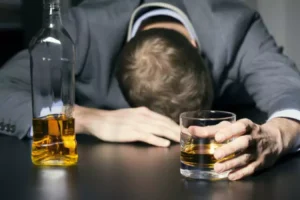
These activities also provide a sense of accomplishment and achievement, which can help counter feelings of shame or guilt. Additionally, yoga incorporates mindfulness techniques, helping individuals better understand and manage their thoughts and emotions. Managing shame and guilt during addiction recovery can be a challenging task. However, alternative therapies like Yoga and Exercise have proven to be useful tools in helping individuals cope with these emotions. By creating works of art, individuals can explore their inner selves and express repressed emotions in a safe and non-judgmental environment.

Q: What are some effective strategies to address shame and guilt during addiction recovery?
- Plus, now that you are sober, you will have a lifetime to make up for any wrongdoings.
- This experience becomes internalized, so that you feel flawed or like a failure.
- Shame can keep you from getting back to helping yourself and moving forward.
- Self-care encompasses activities that people engage in to take care of their physical, emotional, and mental health wellbeing.
If a similar situation arises in the future, you will know whataction to take. Let’s learn more about shame vs guilt, why they are common feelings in recovery and strategies for overcoming them. Keep in mind that as you progress through therapy, shame and guilt can actually intensify, as you’ll be exploring behaviors you may now regret. This conviction acknowledges the unique complexity of human nature. The ability for those who are addicted to choose a new personal narrative where healing is possible demonstrates the greater psychological and spiritual aspects that define us as human.
Shame vs. Guilt: What’s the Difference?
- Over time, this practice can lead to increased emotional resilience and more positive relationship with oneself.
- Using addictive behaviors is the choice we make when we don’t want to look inside and change what we can about ourselves on that deeper level.
- It encourages members to share their experiences, fostering an environment where positive self-talk and mutual support are key elements of healing and recovery.
- Through educating and forming a community, the First Lady is raising awareness of the fact that addiction is a brain disease, not a moral failing.
- These can increase or perpetuate the feelings of shame during rehab.
When individuals feel guilty or ashamed, they may turn to harmful coping mechanisms to alleviate the effect on their mental and physical health. Focusing on your addiction treatment and recovery is another healing practice that you can use to overcome shame as a recovering addict. These personal life improvements allow you to redeem any past mistakes that you have made, and it also helps you with proving to other people that you have truly changed your ways. In addition to this, focusing all of your time on your addiction recovery reduces the chances of a relapse. It’s common for individuals in recovery to experience shame and guilt.

Learning to Forgive Yourself and Let Go of Guilt and Shame
DBT for shame and guilt often involves group therapy sessions where clients practice applying DBT skills in role-plays and other experiential exercises. The therapist also provides individual coaching between sessions to support clients in using these skills in real-life situations. With time, understanding, and self-compassion, it’s possible to overcome shame and guilt and move towards a healthy, happy life in recovery. Shame can keep you from getting back to helping yourself and moving forward.
- Shame often arises when an individual feels inadequate or unworthy, constantly reminding them of their mistakes or shortcomings.
- When you emerge from the fog of substance use, past events begin to show on the surface.
- When we alter our brains, it enhances the chance of thinking in new ways and doing other activities that are more healthful than using substances.
- This may require revisiting shame-inducing events or past messages and re-evaluating them from a new perspective.
By implementing these strategies, you create a solid foundation for long-term recovery, reducing the impact of shame and building a life filled with purpose, health, and fulfillment. Remember, the key is consistency and willingness to adapt as you grow in your recovery journey. Overcoming shame in recovery is about transforming your journey into a story of resilience and empowerment. It’s discovering the strength that lies in vulnerability and using it to forge a path of self-acceptance and growth. Sharing my truth about my sexuality with someone in recovery was a turning point for me. It was a moment where I chose to be kind to myself, to speak to myself with the same compassion I would offer a friend.

Understanding Shame
Not your best friends, your favorite aunt, or even your most loved celebrity. Just don’t give up on becoming a better you, that is what’s important. “It is a shame to miss some cricket but I want to get it right and there is lots to look forward to in the future,” he told Sky Sports.
Patient Care Network
While some of the emotions that come up can be uncomfortable, we are here to help you work through them. Furthermore, peer support groups or recovery communities allow you to share your experiences and learn from others. Connecting with others who understand can alleviate https://ecosoberhouse.com/ feelings of isolation and provide invaluable support. Below are some tips for overcoming shame and guilt in addiction recovery. For other people, the shame and guilt is a direct result of the addiction. They may have acted in negative ways and hurt those they love.
Running for Addiction Recovery: A Holistic Approach to Healing
It evolves throughout our lives—a cumulation of thoughts, feelings, and behaviors. With these experiences, we are labeled, stereotyped and stigmatized. It’s not about having done something wrong (that’s guilt), no, shame arises from the core belief that you are simply not good enough. Sadly, it’s a core belief that is common among those who struggle with addiction issues. Warren is a Licensed Master Social Worker, who specializes in substance abuse and mental health treatment. Clinically, Warren has developed a therapeutic skillset that utilizes a strengths-based perspective, Twelve Step philosophies, Cognitive Behavioral Therapy and Motivational Interviewing.

Effective Coping Strategies for Shame and Guilt
- When individuals feel guilty or ashamed, they may turn to harmful coping mechanisms to alleviate the effect on their mental and physical health.
- Stay connected with me on social media for updates, insights, and more.
- It requires the right treatment to re-program your mind to live without them.
- They often speak of the embarrassment of getting arrested and coming to prison yet again all due to not being able to leave their drug of choice alone.
- But the real problem they have is labeling a relapse as a failure.
- Through these activities, people can release themselves from self-blame and the emotional burden that comes with it.
- The cognitive model views shame as a self-evaluation in reaction to others’ perception of you and to your failing to meet certain rules and standards.
So, how does one who has lived a life in addiction combat the feelings of addiction? First and foremost, being able to accurately identify the emotions that you are dealing with will assist in recognizing what actions you will have to take to be able to address the issue. Being able to acknowledge the guilt or shame also allows you to develop a complete understanding of yourself and why you react to certain situations.
Mindfulness and Meditation Practices for Shame and Guilt
This can include things like stress, social situations, or specific places or people. Once these triggers have been identified, the individual can develop strategies for avoiding them and coping with them when they arise. If you’re guilt and shame in recovery struggling with shame or guilt in addiction recovery, Art Therapy for Coping with Shame and Guilt might be right for you. Don’t miss out on an opportunity to decrease your negative emotions by engaging your creative talents.